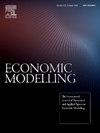老龄化民主下的政府支出构成与长期经济增长
IF 4.2
2区 经济学
Q1 ECONOMICS
引用次数: 0
摘要
本文运用代际重叠模型研究了人口老龄化对民主社会政府支出构成、经济增长和社会福利的影响。在老龄化社会,公共投资和福利支出是通过所得税融资的,代际冲突持续存在。退休的一代(即老年公民)倾向于提高所得税税率,以增加当前的福利支出,通常以牺牲公共投资为代价。相比之下,工人一代(即年轻公民)倾向于加大公共投资,但反对提高所得税。随着人口老龄化,老年公民的政治权力增强,导致税收增加,预算从公共投资转向当前福利。因此,在民主制度下,人口老龄化往往会损害经济增长和社会福利。然而,当老龄化是由寿命延长引起的,它可以促进资本积累,因为个人为退休储蓄更多。此外,预期寿命的延长给年轻人和老年人都带来了生存福利,使他们能够享受退休生活,并从公共投资中获得回报。因此,人口老龄化对经济增长和社会福利也有直接的积极影响。数值分析表明,当老年公民政治权力相对于人口老龄化的弹性足够高时,人口老龄化与经济增长和社会福利之间存在倒u型关系。本文章由计算机程序翻译,如有差异,请以英文原文为准。
Government expenditure composition and long-run economic growth in the aging democracy
This paper examines how population aging affects government expenditure composition, economic growth, and social welfare in democratic societies, using an overlapping generations model. In aging societies, where public investment and welfare expenditures are financed through income taxes, intergenerational conflicts persist. Retired generations (i.e., elderly citizens) favor higher income tax rates to increase current welfare expenditures, often at the expense of public investment. In contrast, working generations (i.e., young citizens) prefer greater public investment but oppose higher income taxes. As the population ages, the political power of elderly citizens strengthens, leading to higher taxes and a reallocation of budgets from public investment toward current welfare. Consequently, population aging under democracy tends to undermine both economic growth and social welfare. However, when aging results from increased longevity, it can enhance capital accumulation, as individuals save more for retirement. Moreover, longer life expectancy brings survival benefits to both young and old generations, enabling them to enjoy retirement and reap the returns from public investment. Thus, population aging also has direct positive effects on growth and welfare. Numerical analysis reveals an inverted U-shaped relationship between population aging, economic growth, and social welfare if the elasticity of elderly citizens’ political power with respect to population aging is sufficiently high.
求助全文
通过发布文献求助,成功后即可免费获取论文全文。
去求助
来源期刊

Economic Modelling
ECONOMICS-
CiteScore
8.00
自引率
10.60%
发文量
295
期刊介绍:
Economic Modelling fills a major gap in the economics literature, providing a single source of both theoretical and applied papers on economic modelling. The journal prime objective is to provide an international review of the state-of-the-art in economic modelling. Economic Modelling publishes the complete versions of many large-scale models of industrially advanced economies which have been developed for policy analysis. Examples are the Bank of England Model and the US Federal Reserve Board Model which had hitherto been unpublished. As individual models are revised and updated, the journal publishes subsequent papers dealing with these revisions, so keeping its readers as up to date as possible.
 求助内容:
求助内容: 应助结果提醒方式:
应助结果提醒方式:


